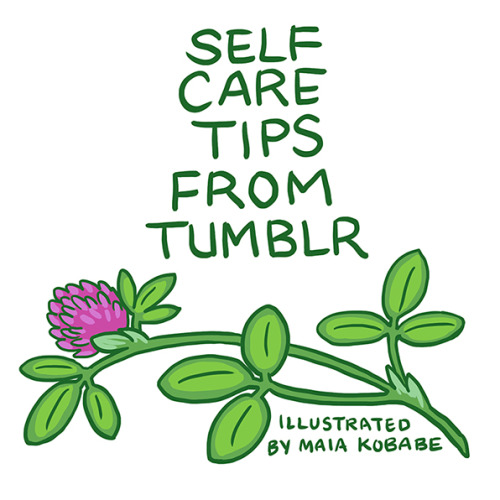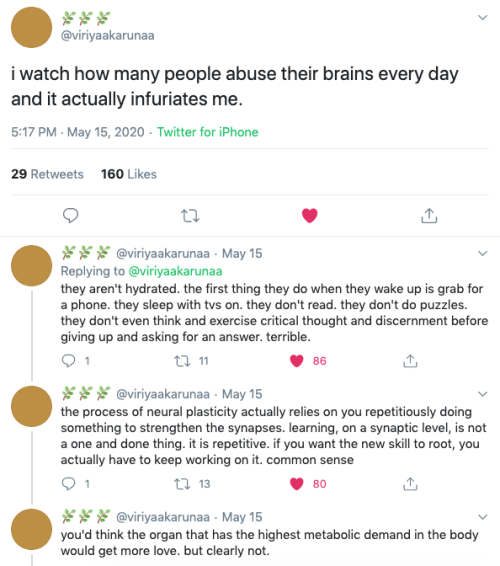Latest Posts by stubbytime - Page 9
A pouch like that seems super comforting, all nice and warm and secure next to momma centaur

so comfee and cozy, with room for friends!
how do the centaurs sleep? and how do they stretch after a good sleep?
Ok this is one I’ve been wanting to cover for a while and my cooldown sketches got out of hand, so buckle up and enjoy the picturebook!

The easiest options is exactly what you think, the flop. In a home, thick carpets or tatami-like mats would provide at least some sort of cushion for the horse-half and various sized cushions and pillows to lift and support the top half. And they CAN sleep standing up, like horses, but it does require both a special harness/corset and practice. And it’s not very comfortable for anything deeper than a doze or catnap for most, so it’s mostly reserved for bad situations, naps, or guard duty.

Most common are recliners, or ‘hammocks’. Easy to fold and carry for cultures on the move, or make fancy for the city-folk they are probably the most ubiquitous of centaur furniture. A simple adjustable A-frame supporting some sort of flexible fabric-ish sheet for the top half to lean against and sleep. Usually paired with some sort of large blanket or padding on the ground to lay the horse-half on!

When you don’t have no fancy recliners, your herd will do! The preferred sleeping method of closely bonded herds is to simply rest on your buddies cushy backside! Roaming bands can often form long chains of sleeping centaurs with the unlucky first taur either on guard duty, sleeping sprawled, or with the group’s only hammock.
Mix and match to your character and herd’s personal preference!
Also stretchies!


How do you pick the colors you use? You always have such nice pretty colors
I did this small “show and tell” for Instagram so I’m going to post the story slides here too. I hope it helps!





I am self taught. So those are just some small fun things and tricks I figured out with just drawing and experimenting! It might not help everyone!
There are also better ways to explain it but it’s always hard to pull something out of my hat if I’m not actively working on a pic. Because a lot of what I do is more intuitive and I don't know how to explain it. But I hope it helps a bit and you get an idea it.
with the fall semester approaching (and me one-nighting another research paper), i just wanted to plug sci-hub, a shadow library site where you can freely access many otherwise-paywalled research papers and academic articles! this site is incredible and i hope you guys get some use out of it, because i sure do :)
Hey guys! DON’T read the following tweets.

Like don’t. I’m not advocating for you guys to have access to materials not many can afford.

Don’t use any of these sites while I’m you’re in school.

Because let’s be honest, you should not have access to information

Like I said, don’t share this. Don’t get this out there to help a student.
So uh….some dude apparently recreated Adobe Photoshop feature-for-feature, for FREE, and it runs in your browser.
Anyway, fuck Adobe, and enjoy!






Please share this!!!!! As you resident vitiligan and fellow artist I am here to educate people on how to properly create a character with vitiligo and other things to keep in mind about the disorder.
Only 1% of the entire world’s population has vitiligo but I see so many artists making characters with it when they sometimes don’t even know what vitiligo is and pass it off as “skin pigmentation”. Like— what does that even mean??? XD
It’s not an aesthetic and it won’t get you “diversity points” so stop romanticizing vitiligo!
STOLE THIS FROM TWITTER LOL BUT
photopea.com
^ free photo/shop directly on your browser oh yeah oh yeah B)
being a self-taught artist with no formal training is having done art seriously since you were a young teenager and only finding out that you’re supposed to do warm up sketches every time you’re about to work on serious art when you’re fuckin twenty-five
how to live life like a ghibli film
1. go out in nature more. every studio ghibli film has some aspect of nature intertwined with the storyline. sometimes its hard to get the energy to go outside, but just going out on your deck or opening the window in your room or taking a walk around the block is enough. if you feel like it, go for a hike! go into the woods and look at every flower, and every tree. look at the mushrooms and streams and notice the beauty of them. look at nature like you’ve never seen it before. wake up at 4 and watch the sunset. put plants around your room. realize how beautiful the world is around you. appreciate it.
2. get a hobby! this step is certainly easier said than done, but its so worth it. struggling with mental illness makes it especially hard to get a hobby, but its very important that you don’t spend the majority of your time on social media. Start small. If you want to start drawing get a coloring book and fill in a picture with beautiful markers! If you want to write find a random prompt online, give yourself 30 minutes and see what you can come up with. Want to try baking? Start with an easy recipe, like chocolate chip cookies, and share them with your family or friends, or just yourself! Try out a bunch of hobbies, and see what you like best. Maybe you like making jewelry or writing poems or creating digital collages or making video edits or decorating your room or riding a bike or sewing or reading. The possibilities are endless, and getting a hobby you enjoy is very important, and fun.
3. start appreciating small things and noticing details. I don’t know how to explain this step, but in studio Ghibli films, small things always stick out. There are beautiful tiny details that make the story so much more magnificent. small details make the studio Ghibli films what they are. maybe on your way to school/work the sky was a really pretty color. Or the tea you made in the morning was perfectly steeped. appreciate small details of life that you don’t normally notice.
4. appreciate food. Pay attention to your food. If you can, try and make/bake your own food! But if you can’t, just be mindful of your food. Try not to eat while you’re on your phone. Dedicate times to just eating. Appreciating the food in front of you. Make yourself the ponyo drink with milk and honey, or ponyo ramen! Make yourself your own blend of tea like the Baron!
5. be kind and help others. Being kind doesn’t have to be a grand gesture, it can be smiling and waving at a baby in a café, or helping your mom finish the dishes, or paying for a friend’s coffee. Small gestures not only put good out into the world, but they also make you feel better. When you can, help others. Try volunteering at an animal shelter, or babysit for your aunt without charging her, or just listen to your friend when they’re going through something and be there for them. In every Ghibli film, the main character is always helping others, and being kind. Try to be like kiki, when she returned the pacifier to the mother who forgot it, or like chizuru from the cat returns, who risks her life to save a cat. Kindness comes in all shapes and forms, so just try your best to do what you can!
6. be your most authentic self. Stay true to who you are. dress how you’d like. Cut your hair like you’ve always wanted to. Stay confident and true to yourself. We all feel insecure sometimes, but we need to remind ourselves that we are great. Don’t try and force yourself to be someone you aren’t. Kiki felt insecure in her abilities as a witch, but she stayed true to herself, and believed in herself, and it paid off. Love and appreciate yourself, just the way you are.
7. (not really a tip but a fun suggestion) start collecting something! This is just an extra step that I wanted to include because I think its nice. But start a collection of things that interest you. It could be anything! Candles, stamps, teacups, antique figurines, 19th century photos, lip balms, books, key chains, flowers, hats. The choices are endless.
I want to live by myself when I move out of my parent's place but I'm really afraid of money problems? I'm afraid that the only place I can afford will be in the ghetto and it'll all be torn apart and I'll only be allowed to eat one granola bar a week. I'm really stressing out about this. I don't know anything about after school life. I don't know anything about paying bills or how to buy an apartment and it's really scaring me. is there anything you know that can help me?
HI darling,
I’ve actually got a super wonderful masterpost for you to check out:
Home
what the hell is a mortgage?
first apartment essentials checklist
how to care for cacti and succulents
the care and keeping of plants
Getting an apartment
Money
earn rewards by taking polls
how to coupon
what to do when you can’t pay your bills
see if you’re paying too much for your cell phone bill
how to save money
How to Balance a Check Book
How to do Your Own Taxes
Health
how to take care of yourself when you’re sick
things to bring to a doctor’s appointment
how to get free therapy
what to expect from your first gynecologist appointment
how to make a doctor’s appointment
how to pick a health insurance plan
how to avoid a hangover
a list of stress relievers
how to remove a splinter
Emergency
what to do if you get pulled over by a cop
a list of hotlines in a crisis
things to keep in your car in case of an emergency
how to do the heimlich maneuver
Job
time management
create a resume
find the right career
how to pick a major
how to avoid a hangover
how to interview for a job
how to stop procrastinating
How to write cover letters
Travel
ULTIMATE PACKING LIST
Traveling for Cheap
Travel Accessories
The Best Way to Pack a Suitcase
How To Read A Map
How to Apply For A Passport
How to Make A Travel Budget
Better You
read the news
leave your childhood traumas behind
how to quit smoking
how to knit
how to stop biting your nails
how to stop procrastinating
how to stop skipping breakfast
how to stop micromanaging
how to stop avoiding asking for help
how to stop swearing constantly
how to stop being a pushover
learn another language
how to improve your self-esteem
how to sew
learn how to embroider
how to love yourself
100 tips for life
Apartments/Houses/Moving
Moving Out and Getting an Apartment, Part 1: Are You Sure? (The Responsible One)
Moving Out and Getting an Apartment, Part 2: Finding the Damn Apartment (The Responsible One)
Moving Out and Getting an Apartment, Part 3: Questions to Ask about the Damn Apartment (The Responsible One)
Moving Out and Getting an Apartment, Part 4: Packing and Moving All of Your Shit (The Responsible One)
How to Protect Your Home Against Break-Ins (The Responsible One)
Education
How to Find a Fucking College (The Sudden Adult)
How to Find Some Fucking Money for College (The Sudden Adult)
What to Do When You Can’t Afford Your #1 Post-Secondary School (The Sudden Adult)
Stop Shitting on Community College Kids (Why Community College is Fucking Awesome) (The Responsible One)
How to Ask for a Recommendation Letter (The Responsible One)
How to Choose a College Major (The Sudden Adult)
Finances
How to Write a Goddamn Check (The Responsible One)
How to Convince Credit Companies You’re Not a Worthless Bag of Shit (The Responsible One)
Debit vs Credit (The Responsible One)
What to Do if Your Wallet is Stolen/Lost (The Sudden Adult)
Budgeting 101 (The Responsible One)
Important Tax Links to Know (The Responsible One)
How to Choose a Bank Without Screwing Yourself (The Responsible One)
Job Hunting
How to Write a Resume Like a Boss (The Responsible One)
How to Write a Cover Letter Someone Will Actually Read (The Responsible One)
How to Handle a Phone Interview without Fucking Up (The Responsible One)
10 Sites to Start Your Job Search (The Responsible One)
Life Skills
Staying in Touch with Friends/Family (The Sudden Adult)
Bar Etiquette (The Sudden Adult)
What to Do After a Car Accident (The Sudden Adult)
Grow Up and Buy Your Own Groceries (The Responsible One)
How to Survive Plane Trips (The Sudden Adult)
How to Make a List of Goals (The Responsible One)
How to Stop Whining and Make a Damn Appointment (The Responsible One)
Miscellaneous
What to Expect from the Hell that is Jury Duty (The Responsible One)
Relationships
Marriage: What the Fuck Does It Mean and How the Hell Do I Know When I’m Ready? (Guest post - The Northwest Adult)
How Fucked Are You for Moving In with Your Significant Other: An Interview with an Actual Real-Life Couple Living Together™ (mintypineapple and catastrofries)
Travel & Vehicles
How to Winterize Your Piece of Shit Vehicle (The Responsible One)
How to Make Public Transportation Your Bitch (The Responsible One)
Other Blog Features
Apps for Asshats
Harsh Truths & Bitter Reminders
Asks I’ll Probably Need to Refer People to Later
Apartments (or Life Skills) - How Not to Live in Filth (The Sudden Adult)
Finances - Tax Basics (The Responsible One)
Important Documents - How to Get a Copy of Your Birth Certificate (The Responsible One)
Important Documents - How to Get a Replacement ID (The Responsible One)
Health - How to Deal with a Chemical Burn (The Responsible One)
Job Hunting - List of Jobs Based on Social Interaction Levels (The Sudden Adult)
Job Hunting - How to Avoid Falling into a Pit of Despair While Job Hunting (The Responsible One)
Job Hunting - Questions to Ask in an Interview (The Responsible One)
Life Skills - First-Time Flying Tips (The Sudden Adult)
Life Skills - How to Ask a Good Question (The Responsible One)
Life Skills - Reasons to Take a Foreign Language (The Responsible One)
Life Skills - Opening a Bar Tab (The Sudden Adult)
Relationships - Long Distance Relationships: How to Stay in Contact (The Responsible One)
Adult Cheat Sheet:
what to do if your pet gets lost
removing stains from your carpet
how to know if you’re eligible for food stamps
throwing a dinner party
i’m pregnant, now what?
first aid tools to keep in your house
how to keep a clean kitchen
learning how to become independent from your parents
job interview tips
opening your first bank account
what to do if you lose your wallet
tips for cheap furniture
easy ways to cut your spending
selecting the right tires for your car
taking out your first loan
picking out the right credit card
how to get out of parking tickets
how to fix a leaky faucet
get all of your news in one place
getting rid of mice & rats in your house
when to go to the e.r.
buying your first home
how to buy your first stocks
guide to brewing coffee
first apartment essentials checklist
coping with a job you hate
30 books to read before you’re 30
what’s the deal with retirement?
difference between insurances
Once you’ve looked over all those cool links, I have some general advice for you on how you can have some sort of support system going for you:
Reasons to move out of home
You may decide to leave home for many different reasons, including:
wishing to live independently
location difficulties – for example, the need to move closer to university
conflict with your parents
being asked to leave by your parents.
Issues to consider when moving out of home
It’s common to be a little unsure when you make a decision like leaving home. You may choose to move, but find that you face problems you didn’t anticipate, such as:
Unreadiness – you may find you are not quite ready to handle all the responsibilities.
Money worries – bills including rent, utilities like gas and electricity and the cost of groceries may catch you by surprise, especially if you are used to your parents providing for everything. Debt may become an issue.
Flatmate problems – issues such as paying bills on time, sharing housework equally, friends who never pay board, but stay anyway, and lifestyle incompatibilities (such as a non-drug-user flatting with a drug user) may result in hostilities and arguments.
Your parents may be worried
Think about how your parents may be feeling and talk with them if they are worried about you. Most parents want their children to be happy and independent, but they might be concerned about a lot of different things. For example:
They may worry that you are not ready.
They may be sad because they will miss you.
They may think you shouldn’t leave home until you are married or have bought a house.
They may be concerned about the people you have chosen to live with.
Reassure your parents that you will keep in touch and visit regularly. Try to leave on a positive note. Hopefully, they are happy about your plans and support your decision.
Tips for a successful move
Tips include:
Don’t make a rash decision – consider the situation carefully. Are you ready to live independently? Do you make enough money to support yourself? Are you moving out for the right reasons?
Draw up a realistic budget – don’t forget to include ‘hidden’ expenses such as the property’s security deposit or bond (usually four weeks’ rent), connection fees for utilities, and home and contents insurance.
Communicate – avoid misunderstandings, hostilities and arguments by talking openly and respectfully about your concerns with flatmates and parents. Make sure you’re open to their point of view too – getting along is a two-way street.
Keep in touch – talk to your parents about regular home visits: for example, having Sunday night dinner together every week.
Work out acceptable behaviour – if your parents don’t like your flatmate(s), find out why. It is usually the behaviour rather than the person that causes offence (for example, swearing or smoking). Out of respect for your parents, ask your flatmate(s) to be on their best behaviour when your parents visit and do the same for them.
Ask for help – if things are becoming difficult, don’t be too proud to ask your parents for help. They have a lot of life experience.
If your family home does not provide support
Not everyone who leaves home can return home or ask their parents for help in times of trouble. If you have been thrown out of home or left home to escape abuse or conflict, you may be too young or unprepared to cope.
If you are a fostered child, you will have to leave the state-care system when you turn 18, but you may not be ready to make the sudden transition to independence.
If you need support, help is available from a range of community and government organisations. Assistance includes emergency accommodation and food vouchers. If you can’t call your parents or foster parents, call one of the associations below for information, advice and assistance.
Where to get help
Your doctor
Kids Helpline Tel. 1800 55 1800
Lifeline Tel. 13 11 44
Home Ground Services Tel. 1800 048 325
Relationships Australia Tel. 1300 364 277
Centrelink Crisis or Special Help Tel. 13 28 50
Tenants Union of Victoria Tel. (03) 9416 2577
Things to remember
Try to solve any problems before you leave home. Don’t leave because of a fight or other family difficulty if you can possibly avoid it.
Draw up a realistic budget that includes ‘hidden’ expenses, such as bond, connection fees for utilities, and home and contents insurance.
Remember that you can get help from a range of community and government organizations.
(source)
Keep me updated? xx








Self Care Tips From Tumblr: When you feel like everyone hates you, sleep. When you feel like you hate everyone, eat. When you feel like you hate yourself, shower. Someone out there feels better because you exist.
instagram / patreon / portfolio / etsy / my book / redbubble

**Please Share!!!**
Hello, friends of the internet! My name is Rose, and I’m a sophomore American Sign Language Interpreting student. I, along with my project partner Bre @quintin-thefinn , have been working on a Social Justice Action Plan for our ASL 2010: Deaf Culture class, and now it is time to put our plan into action!
To help us with our project and expand the knowledge of ASL and Deaf culture, please share this list so we can reach as many people as possible! Thank you so much for your time and we hope this list benefits you and many others!
FYI : this website definitely DOES NOT have a million free TEXTBOOKS and in general books for you all to download 😌
No reason to reblog this 👀
college tips
ya girl is graduating in a couple of weeks so i wanted to dish out some last minute advice extracting every bit of wisdom possible from my last brain cell for those of y’all going to college soon
general stuff
you don’t really understand how gross communal bathrooms are until you’ve been in one. they might say they’re cleaned regularly, but they’re not. get shower flip flops (the plastic ones) and use them so you don’t get some weird foot fungus
when selecting a dorm room (if you can), always take into account the fact that the elevator is probably going to break at some point. and also that it will probably smell pretty bad most of the time.
get a nice backpack. one that’s big and roomy, that can hold a lot of stuff and fits comfortably on your back. sometimes when your dorm is far from the rest of your classes, you’re not going to go back to your room until late, so it’s best to just carry everything around with you all day and you don’t want to break your back doing so.
keep an emergency stash of stuff in your backpack at all times. you never know what will happen during the day and you don’t want to have to go back to your room to get it. my emergency pack consisted of stationery stuff (pen, pencil, highlighter in case i left my pencil bag at home), medicine like advil and pepto bismol, feminine hygiene products, a phone charger, eyeglass cleaning wipes, and vaseline. always keep a second phone charger in your bag, even if it’s one of those cheap dinky ones. you NEVER want to be without a phone charger.
whenever i was in the cafeteria, i used the coffee cups to load up on cereal or fruit in case i got hungry and wanted a snack during class. professors generally don’t care whether you eat or not in class. just do it quietly.
never, ever, ever run out of snacks in your dorm room. you never know when you’ll get hungry at night and want something to eat, and you do not want to put in the effort to leave and get food, OR spend money for grubhub.
hydroflasks are heavy and expensive. don’t get one. get something cheaper and easier to lug around campus, and if you’re into iced tea or coffee, get something you can put that in too.
bring an umbrella and comfortable rain boots. rain coats will not do jack, i tell you, when you’re getting soaked. just get an umbrella
if you’re from the southern US or from california, trust me on this: get a winter jacket. a good winter jacket. you never know when the next cold snap will be in the fall or winter and you don’t want to be walking around campus freezing your ass off.
set your clothes out the night before. this will save you a couple minutes of sleep when you have to wake up and go to class, plus checking the weather before you head out is always helpful.
emergen-c is a vitamin c supplement that you can put in your water and drink. if you feel a bit drowsy or sick, you will feel better after drinking this. tip from a doctor i shadowed
academic stuff
sometimes sitting in the front isn’t helpful at all. maybe you’re someone who wants to fidget or doodle without distracting people, maybe you’re just uncomfortable sitting close to the professor if they’re one of those types who goes around calling on people, or maybe you want to sit near friends who can clarify things as the class drags on. that is ok. do what works for you. but sometimes people talk pretty loudly in the back and in that case you have to move. just move. it doesn’t matter if you seem rude, just move because you have to focus.
ask questions. you are probably not the only person with that question in the room. i know some profs can make it feel awkward to ask because they can act elitist, but it’s your right to learn in that class. you paid to be there. you’re paying them to be there
if you email a professor and they don’t reply within five days, email them again. don’t feel like you’re bothering them. they’re probably just busy and forgot to reply.
office hours aren’t always necessary. some people love office hours because they’re good at hanging out with people and talking to them, and they can basically have the professor teach the material again. some people, like me, want to learn what’s going on before going, or even without going. most of the time you might not even need it. the one time i would always recommend you go is figuring out what you did wrong on a test if you don’t already know what you did.
don’t study in your room. i’m actually serious about this, don’t study in your room. study somewhere outside your room, whether it’s in a dorm communal space or the library, a coffee shop, or whatever. separate your schoolwork from your place of rest, and keep them separate. once work and rest time begin to blur together, you’ll start having a much worse time in school.
if you get a drop on a test, don’t slack off for the first one just because you have a drop. study for each one like it’s the last one you’ll take. you never know when you might get sick or have some emergency
social stuff
if you’re not into clubs or parties, just don’t bother. they’re loud and a lot of people get drunk and throw up on the floor so. don’t even
join a club because you actually care about it, not for the brownie points. don’t get roped into doing a bunch of stuff you hate
you won’t find your best friends in the first semester of college unless you have impeccable luck. if you’re like the rest of us, you have to be patient for them to fall into your life. when you do find them, you’ll know.
you also might not find a significant other in college. you might not even want a significant other. all of this is ok. you might see everyone dating but remember you’re living your best life right now and it doesn’t matter in the long run
do what you need to do for you, not other people. in college you have the freedom to do what you want with friends, but if you need to get stuff done or you’re just not in the mindset or physical health to hang out, say no. you need to live your life for you
i hope even one piece of advice here will help you. if you have any other specific questions, please feel free to ask or drop into my inbox :)))

how i use google drive for university - pt 1: digital notetaking by kkaitstudies
idk about you but i’ve tested a bunch of note taking methods. in my last few years of university, i was indeed lazy and rarely referred back to the professor’s slides in the course shell. i opted to read off the slides in lecture and take notes. while MS OneNote is great, i found myself enjoying Google Drive much more. so here is a quick overview of how i take notes using Google Docs.
folders are your friends
make separate folders for each of your courses. google drive even gives you the option to change the colours of the folders. in these folders, add any relevant coursework such as the syllabi, readings, and your notes document.

use one doc for notes per course
once you receive the syllabi, take some time to take note of required readings, and assignment deadlines. i have created a free template you can save to your own google drive that you can access here. fill out:
- course code & name - prof’s name, office hours, and email - date(s) for each week of class - weekly readings (tip: if you have online readings, you can link them in the doc!) - & open the document outline (view > show document outline)
you also don’t have to use all these features. T B H, i didn’t do weekly readings. a lot. oops. BUT i did always pay attention in lecture. i simply deleted the “reading notes” header every week i didn’t bother to read.

make use of early access to lecture slides, headers, etc.
some profs (bless their souls) post the slides sometime before the lecture. if you have the time, copy the lecture slides into your notes. and if they don’t…type real quick to get all the info as it’s happening (or go back to slides online after lecture to see what you missed out on). i separate lecture topics with headers, with the bullet points underneath (see above). if there is anything that the prof says during class that isn’t in the lecture slides, i will change the colour of the text to a different colour. any important concepts or testable material are highlighted.
…and that’s how i take notes! everyone is different. not all note-taking methods work for everyone. this is what worked for me in my last 2 years of uni. hopefully a similar structure works for some of y’all! also, let me know what you think and @ me if you end up using my template. have a great semester!
coming soon: [ part 2: grade tracker | part 3: gmail and gcal ]
You know what’s some crazy $hit?
This fabulous bitch

She makes a shit ton of poses (like 16,000 or some crazy nonsense). I used this lovely lady to draw so much as a teen. Whether it was some nerdy pose for my Mary Sue as fuck OCs

or for full on fight sequences

or for tragic deaths of my OCs in the arms of a totally OOC main protagonist.

this bitch hooked me up.
And with the wildest, craziest stuff that you could see in your head but had no way or resources to reasonably draw like

or this

or this

DUDE! INASNE SHIT!! So I was using her for a pose reference and decided, you know what, I owe this bitch some cash. Lemme dole it out for her. BUT then, I looked and saw she only has 286 fucking patrons!! This chick gives out free shit and spends countless hours arranging these shoots and setting this stuff up.
I’ll fork up the cash, SenshiStock. You’re worth it.
Check out this amazing woman’s stuff, and get knowledged: https://www.deviantart.com/senshistock
how to pick a therapist
A friend recently asked how I found my therapist, who I absolutely adore. I was in a bad place when I first started seeing her, and she has helped me completely turn my life around. The fact is that I saw a lot of bad and mediocre therapists, then finally got lucky. That said, now that I know what a really good therapist is like, I do have some advice for finding one:
Do interview sessions with multiple therapists and take notes on what you like or don’t like. It’s not high maintenance or pushy to ask a lot of questions. You’re a customer looking for someone to provide a service - an expensive service, possibly for a long time. This is someone you will trust with your secrets and your health. Sometimes, your life.
If you’re in a dark place while searching, try to find a level-headed friend or family member to help you interview. The most frustrating thing about mental healthcare is that patients are often too vulnerable and ill to self-advocate and, as a result, often tolerate unacceptable behavior from their mental healthcare providers. Bad providers will blame patient dissatisfaction on patients being unstable. There is little accountability for their performance. If you can’t stand up for yourself, it helps to have a trusted third party that can either come with for interviews or, at the very least, who can talk with you after about your concerns and options. If a therapist asks why you want to bring someone with, simply say, “I’m not mentally able to self-advocate at this time. I am more comfortable having someone with me for support.”
Look for someone who does holistic therapy and/or who talks about using a variety of methods, depending on patient needs. Ask what types of methods they use and if they prefer one over others. A big part of therapy is teaching you a variety tools that will help you cope with stressors. You should expect your therapist to have more than one tool in their arsenal as well.
Ask their opinion on medication. I have met therapists who don’t believe in medication at all and some who won’t even work with patients that aren’t willing to medicate. Personally, I feel the only correct response is, “Medication is an important tool for some people, but it’s not the answer for everyone.”
Ask them what successful therapy looks like to them and what they think the most important things are to be successful in therapy. You want someone who talks about how different patients need different things. For some people, stability is the goal. Others have more specific objectives. The worst sort of therapist is one that uses the same structure for every patient because they’ve decided it’s the “right way.”
During interviews, you do want a therapist to mention that a patient has to be willing to change and give effort. However, you don’t want them to spend an excessive amount of time going on about how YOU have to do the work and “this won’t work if you’re not willing to give it your all” and blah, blah, blah. That is the sign of a therapist that will see therapy not working and immediately say, “Ah, not my fault. They weren’t doing the work,” absolving themselves of any extra work or creative thinking.
The final item is tricky to spot in an initial interview, but it’s crucial. Therapy requires a delicate balance. A good therapist can guide a session and push their patient without being domineering or dismissive. You can spot the domineering therapist fairly easily: they will tell more than they ask, make you feel uncomfortable or self-doubting, and will minimize your wishes or concerns about therapy. The lazy therapist is much more common. They’re not as harmful or obvious as the domineering therapist, but they probably won’t help you. They let you guide therapy, don’t ask many questions, and don’t challenge you. They will let you use therapy as a venting session or allow you to rehash the same handful of traumas without doing any work to process them in a new way. If you find yourself with a domineering or lazy therapist, fire them.
What has made my therapy successful is that my therapist is flexible, adaptable, and willing to try new things and new methods. There were periods where I was actually too ill to do any work, but she never addressed it like, “Ah, She Won’t Do The Work.” She just scheduled us for very frequent sessions and kind of quietly came up with things to keep me busy and stable, monitoring my state for safety until I reached a place where I was able to do the work.
When something didn’t work, it was never my fault, and she never spent any time lamenting that it hadn’t worked. She would just immediately say, "Okay, not this, then. I have something different planned for us to try next week.” Just like that, we were talking about what we were going to do next instead of thinking about the thing that failed.
The mental healthcare world, at least here in the US, is pretty fucked up. For a time, it was definitely doing me more harm than good, and I have trauma from my experiences with bad mental healthcare providers. I think it’s important to talk about patient self-advocacy and provider accountability. I hope the list above will help someone avoid bad providers and get the help they need. If you would signal boost this, I’d really appreciate it.

here’s a compilation of college tips on tumblr! hope it’s helpful, and feel free to add your own.
a sister’s guide on how to college by @thatwasvesey (originally posted here)
actual good first-time college student advice by @lampurple
advice for incoming college freshmen by @catsbooksandthoughts
advice for incoming college freshmen by @dearpanda
college scheduling tips by @anxiousstudying
college tips by @studysetgo
college tips from a real live college student by @socsciblr
college/uni tips by @daenerystargaryn
how to survive your first week of college by @studypunks
paying for college by @collegerefs
things i learned during my first weekend at college by @hotmessacademics
things i wish i knew before college by @thevolutionofnerdy
things is wish i knew my freshman year of uni by @studyswimsexsleep
things i wish someone had told me when i was entering university by @paddysnuffles
thoughts from a senior in college by @thelittle-victories
tips for college freshmen by @poshspicestyles
tips for saving money on required books by @mertinawriting
tips for surviving college (with a mental illness) by @annefreuds
tips for surviving university by @95noteu
university survival tips by @lightninginthecolliednight
5 tips for incoming freshmen by @passwithclassandaniceass
10 angry college tips for incoming freshmen by @studycrack
10 ways to make your dorm room (almost) instantly homier by @smithwithsophia
17 things i learned my first year of college by @letsget-downtobusiness
realistic tips for uni students
i’ve seen many tips for university students fly around here and i’ve noticed that some of them are either unrealistic or not necessary at all (take it from someone who has been studying 3 years already) so here are some real tips to help you
BUY. A. BACKPACK. i’ve made the same mistake and my back is in s h a m b l e s. and honestly, you don’t need an expensive one, but be sure to check if your backpack has a laptop compartment in case you bring a laptop a to class. i know it looks unflattering as hell but trust me your back will thank you for it.
You don’t need expensive stationary. any pen or notebook will do but make sure you bring enough pens to classes, exams, etc because you don’t want to sit there panicking because your pen gave out.
on the topic of stationary ALWAYS KEEP A NOTEBOOK IN YOUR BAG what if your laptop dies? what if you want to make a reminder to yourself that you will forget about 5 minutes later? just keep a small notebook in your backpack in case you need it.
Always bring food and water! i’m particularly bad at this, not gonna lie, but especially when it’s summer and hot as hell this tip is incredibly important or you will most likely feel awful. i’m not a big breakfast eater myself because i get stomach issues from it but i make sure to bring something for either on my way to class, just before class, or during the break you might have in class.
For those of you who menstruate: keep tampons/pads in your bag. you’re friends will thank you for it as well!
Moving on from backpack arrangements: pro-tip you don’t have to be bff’s with you teachers, especially not in your first year. later when you’re writing your dissertation, it’s can be helpful, but honestly they most likely won’t remember you in your first year and they will also most likely not grade your papers/tests either so no need to suck up
on the topic of teacher: you don’t have to attend every single office hour. if you have a question, please go, but otherwise you’re wasting your damn time
wait until your first lecture/seminar before buying books your professor will most likely say please buy this or this is optional. don’t waste money!
read the damn syllabus not just so that you know what to do before class, but also so that you know what to do in case you fall ill and what the attendance expectancy is (some professors have a 80% attendance or you will fail and others don’t give a shit)
don’t sign up for 9 am classes you won’t go okay? it seems fun at the beginning but you’re gonna end up dreading that class even though it would’ve been interesting if you were awake enough to take it in
procrastination is normal everybody does it and guess what? YOU DON’T NEED TO GET ALL A’S!!!! strive for it? great! but work yourself until you’re crying from the stress and thinking about dropping out because you can’t handle it? not so great!
mental health is more important than that 4.0 GPA speaks for itself but also if there is something going on please talk to your student advisor or tutor! you can better warn them in advance than try to build a case after you flunked that assignment/exam
try to make friends honestly it will make your uni experience so much nicer. and i get social anxiety, but at least try to get on friendly terms with people so you have notes when you’re sick, a partner when there is group work to be done, and just a friendly face when it’s all too much!
wear comfortable clothes yes i get the need to look cute but honestly when you’re freezing in your lecture hall because you wanted to wear that one top, you’re gonna be mad at yourself. also bring a jacket/scarf to put over yourself when you know a lecture hall/classroom is cold as hell it helps, trust me.
have fun sounds cliche but sign up for that one class that has absolutely nothing to do with your major but it looks fun, go out partying with your new buddies and stay up later than you should, it’s okay. nobody is all study all the time and you get to enjoy yourself. just find something fun in everything you learn even if you f-ing despise that one course because it will help you get through these years!
Soon to be college freshman, Can you give me advice? Like what I'll need when I move into dorms? Study tactics? Things like that? (Also, I wanna be a teacher!)
That’s so awesome!!! Here are some things off the top of my head:
Dorm supplies
(Technically I wrote these for another post a while back but I still stand by these recommendations tbh)
A good lamp (ideally a sunlight lamp or something that has natural-looking light so you don’t hurt your eyes too much at 2 am)
A storage tower thingy (great for toiletries and other small stuff like that)
A fluffy rug makes a hugeeeee difference in my opinion
Hanging shoe rack (you can put hats, belts, socks, etc. in it, not just shoes!)
A planner or notebook for a bullet journal (if desired)
An essential oil diffuser + your favorite essential oil scents (instead of air fresheners, I think they give a much nicer feeling plus you can customize it way more)
Fairy lights
One of those comfy armrest pillow thingies idk what they’re called ok
A good pair of headphones!
A good water bottle that DOESN’T LEAK
Mildliners or some other nice-looking highlighters (if you like to highlight your notes or textbooks)
Study tips
When you’re trying to focus, seriously put your phone away somewhere you can’t see or use (I like using the app Forest and putting my phone in a drawer, though there are a bunch of other similar apps out there such as Flora, Plantie and Study Bunny!), turn off any notifications that would come up on your laptop, and close any tabs that you’re not currently working on. I know this is so one of those things you see in every list of advice, but it truly can make such a difference in my opinion!
Have a system for keeping track of assignments. I use Notion, but at different times since being in college I’ve also used a planner or a bullet journal, so find a system that works for you and use it religiously
Keep a calendar of classes and other meetings. I use Outlook but you could also use Google Calendar or even just writing it down in whatever planning system you choose. Don’t just rely on yourself to remember when your classes are, because at some point you’ll miss a meeting. It also gives you more peace of mind and mental space for other things, too
Personally, I find that doing a quick and easy task in the morning before I move onto more difficult assignments helps a lot with motivation, so give that a try and see if that also works for you! Some people also like doing their hardest task first, so just figure out which one suits your life the best
Tbh I have a lot more tips but they’re so dependent on like what types of classes you’re taking, if they’ll be online vs in-person, so hmu if you want more specifics!
Other tips
If you are truly not wanting to do a piece of homework, try to figure out why that is instead of just forcing yourself. A lot of times it can be that you are ignoring things like hunger, exhaustion, mental health, etc. and it’s really important that you take care of some of those essential things first. Mental health comes above schoolwork, and you need to make it a priority in your life so you don’t get burnt out
Have a life outside of schoolwork. Join a club, do volunteerwork, make some friends and talk about things other than classes, go into town from time to time, pick up or continue doing a hobby, anything really. So many people get completely stuck in their college schoolwork bubble that they forget to also live their life somewhere in there too
Best of luck!!! I hope things go as smoothly as possible for you!
Plant Care 101: The Basics
It’s kind of hard to give a super basic guide to plant care because plants are super diverse and have varying care requirements BUT there are some things that every plant needs and that you can apply pretty broadly to caring for plants. This is going to be focused on container plants and houseplants more than plants in the ground/garden because that’s a whole other can of worms, but yeah, anyway, here’s some quick tips for beginner plant ownership.
1. LIGHTING - Think about where you’re actually going to put your plants
… before you get them (ideally). All plants need light. No plant will live in a windowless bathroom or basement (I mean unless you have grow lights BUT that’s another story). Very few plants will survive in a dark, dim corner.
Figure out which direction your house faces! Different plants do best in different light exposures. Afternoon sun (west) is hotter than morning sun (east) and can dehydrate plants faster or cause sunburn. Southern exposures get the most direct sun, and northern exposures get mostly indirect sun or no sun. And obstacles like trees or awnings will potentially block light as well.
Full sun is considered 6+ hours of direct sun, part sun is 2-4 hours of direct sun, and shade is less than two hours of direct sun. Keep in mind the sun intensity will vary depending on your location and the time of year.
A lot of houseplants prefer “bright, indirect light”. In a window that gets hot, direct sunlight like a south or west window, this could mean putting up a sheer curtain or keeping the plants farther away from the window. East windows generally get bright indirect light all year and north windows may not be bright enough for most except the lowest light plants.
Get plants to suit your space! Do some research! If you have trouble identifying the plants that you already have, try google image searching using various details about it. Sometimes that works.
2. POTS AND SOIL - Think about your plant’s house
Your plant’s house is its pot. When you bring it home from the store or nursery, it’s a good idea to replant it. The soil that’s best for keeping the plant alive in the store is usually different than the soil that’s best for it in your house. Especially if you’re getting your plants from stores like Home Depot, Lowes, Wal-mart, etc (it’s gross). Taking a look at a plant’s roots is important! A lot can hide under the surface of the soil…
I can’t really recommend a specific soil brand because everything varies regionally and every plant is going to have different soil needs, so really this is just trial and error. Try out different soils! Experiment with perlite which will make your soil looser and drain better. For succulents, I use a mix of topsoil (not potting soil), sand, and perlite.
You generally want your generic potting soil to A) absorb some moisture but B) drain well. Which may seem contradictory, but it isn’t, I promise.
As for your pot….. DRAINAGE HOLES ARE A MUST. If your pot doesn’t drain, you can put your plant in a plastic insert and remove that to water it, you can attempt to add your own drainage holes, or you can doom your plant to slow and inevitable death. If your pot does have drainage holes, test it first to see if it actually drains.
Increase the size of your plant’s pot only a few inches at a time. Tiny plants in giant pots aren’t ideal, mainly because the soil dries down inconsistently. The soil around the edges may be dry but soil at the roots may still be wet. Also, don’t plant your plants too low! The soil should stop about an inch or so below the top of the pot. Planting too low can cause issues with air circulation to the stem/soil which can cause rot issues. (tbh I’ll probably make a specific post about repotting plants because there are a lot of things to know and a lot of tips and tricks)
As for the type of pot, that’s up to you. Plain terracotta pots are helpful for plants that like to dry down between waterings because they wick moisture from the soil… not as ideal for plants that love lots of water. Also, there’s no shame in plain, plastic pots. None.
3. WATERING - please don’t drown your thirsty boys
This one’s the hardest to do an overview of because different plants and even the same plants in different locations have vastly different watering needs.
Plants (usually) only take up water when the photosynthesize. Less light = less photosynthesizing = less water taken up. Cloudy day? Less water taken up. In the greenhouse, we generally don’t water on cloudy days because the plants don’t take up as much water and because water sitting on the leaves/soil doesn’t evaporate as quickly potentially leading to rot issues.
You can usually visually tell if the soil is dry. To be more sure that the soil is really dry, poke your finger in about an inch. To be more, more sure, you can wiggle a wooden chopstick in the soil and if it comes out dry, the soil is dry. Some plants prefer to dry down almost completely before watering again, some prefer about 30-50%, some like to stay moist but not drowning.
If your plant appears to be wilting, check the soil. If it’s wet, it may be overwatered or sick. Don’t water for a bit and check the stem/roots for rot. If it’s dry, it’s likely underwatered. Very dry soil can take a few repeat waterings to actually absorb moisture again.
It is better to water deeply infrequently than to water in small amounts more frequently. Your goal when watering is to dump in enough water that it flows vigorously out of the drainage holes. When I first started watering plants I thought it was way too much but seriously, dump that water in there. No trickles allowed.
4. PLANT ISSUES - wtf is wrong with my plant
You’re going to run into plant issues when keeping plants, that’s just how it is. Diseases, bugs, rot, etc.
There are WAY too many issues to get into in a basic post like this, but in general…. pay attention to your plant! Look at the undersides of the leaves and leaf tips and the stem. Take lots of pictures! Touch your plant and the soil! Keep an eye out for changes.
If your plant does develop what you think is an issue, google is your friend. I’ve googled so much of the stuff I know about plants, even when I’m working with very experienced growers. Google is good. Don’t rely solely on one source of info.
And if your plant unfortunately kicks the bucket? No, you don’t have a black thumb. There is no such thing. That’s especially a time to google the shit out of that plant and re-evaluate your growing conditions. I’ve killed LOADS of plants and that was usually because I put a plant in a less than ideal location and then didn’t give it the right care. Or because of bad luck.
There is NO SUCH THING as a black thumb.
I think that’s about it really for the basics. There’s also stuff like pH and humidity and temperature, etc etc to consider but that’s way too much to get into in just one post. Hopefully this makes some kind of sense and isn’t just a wall of text? And is helpful? If you have any other questions, feel free to message me if you’d like. Or add onto this post with other tips if you have them.






my masterpost | my studygram | ask me anything
[click images for high quality]
[transcript under the cut]
Other advice posts that may be of interest:
How To Stop Procrastinating
How To Study When You Really Don’t Want To
Unusual Study Tips
How To Do Uni Readings
Active Revision Tips
How to Focus in Online Classes
Keep reading







